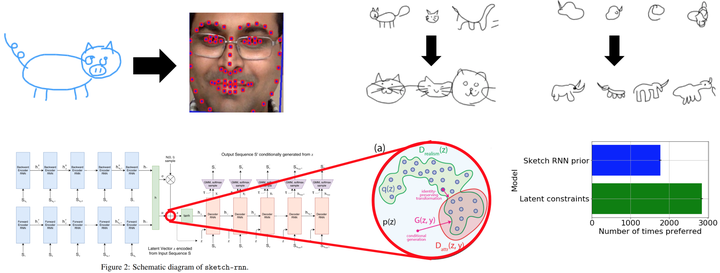Learning via Social Awareness: Improving a Deep Generative Sketching Model with Facial Feedback

Abstract
In the quest towards general artificial intelligence (AI), researchers have explored developing loss functions that act as intrinsic motivators in the absence of external rewards. This paper argues that such research has overlooked an important and useful intrinsic motivator: social interaction. We posit that making an AI agent aware of implicit social feedback from humans can allow for faster learning of more generalizable and useful representations, and could potentially impact AI safety. We collect social feedback in the form of facial expression reactions to samples from Sketch RNN, an LSTM-based variational autoencoder (VAE) designed to produce sketch drawings. We use a Latent Constraints GAN (LC-GAN) to learn from the facial feedback of a small group of viewers, by optimizing the model to produce sketches that it predicts will lead to more positive facial expressions. We show in multiple independent evaluations that the model trained with facial feedback produced sketches that are more highly rated, and induce significantly more positive facial expressions. Thus, we establish that implicit social feedback can improve the output of a deep learning model.